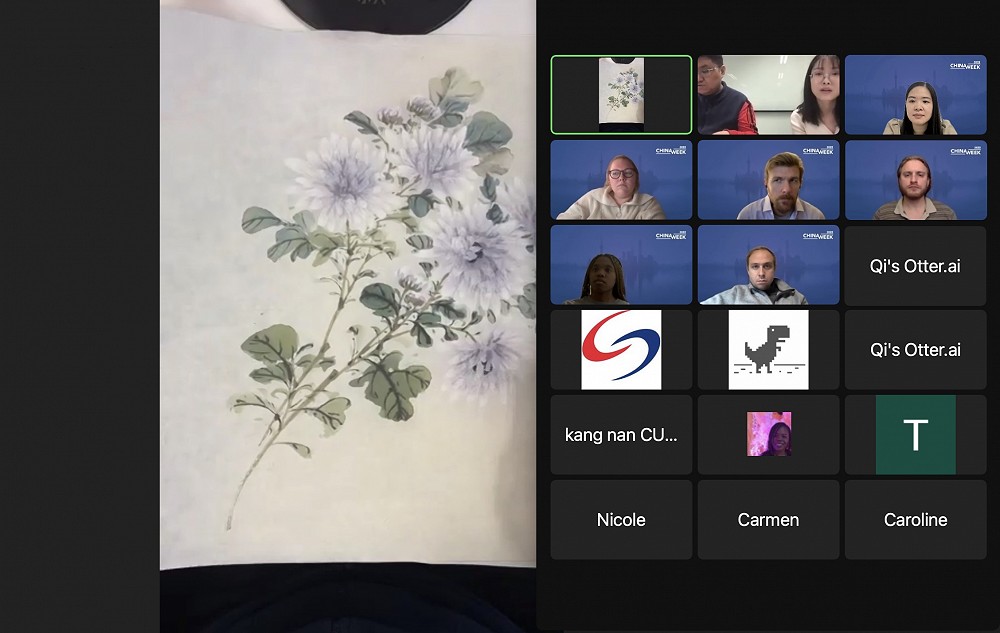From October 17th-October 20th, CUSEF hosted its first-ever China Week, a virtual trip to China that gave graduate students studying international relations, public policy, and journalism the opportunity to hear from China experts and professionals across various fields, while experiencing Chinese culture in a fun and unique way!
Students from universities all across the United States joined China Week, representing Northwestern University, Columbia University, New York University, Georgetown University, Johns Hopkins, and more! The week kicked off with interactive lectures by Professor Shen Dingli of Fudan University, and David J. Firestein, President and CEO of the George H. W. Bush Foundation for U.S.-China Relations, who offered their perspectives on the current and future state of U.S.-China relations, as well as the implications of China’s 20th National Party Congress.
Day two began with Jean Liu, Executive Vice-President of EF, who discussed the historical and future exchange of international students between the U.S. and China, and the hopeful return of exchanges following the Covid-19 pandemic. The second session covered American businesses in China from two representatives of the American Chamber of Commerce in China, President Michael Hart, and Allison Lapehn, Manager of Government Affairs and Policy.
The next night, students had the opportunity to learn and practice a bit of Chinese culture and art through a Chinese painting and calligraphy course offered by Beijing Foreign Study University. The third evening wrapped up with Vice Chancellor Jeffery Lehman of New York University Shanghai discussing potential areas of cooperation between China and the U.S., and the importance of a positive relationship for the world’s economy and fight against climate change.
For the final night of China Week, environmentalist and Chairperson of Joint US-China Collaboration for Clean Energy, Peggy Liu, spoke on the importance of sparking a green revolution, and how to ignite conversations around climate change to make an impact on our communities. The final session of the week was a student-to-student dialogue, where participants were joined by students from Tsinghua University in China to discuss student life, job prospects, and the current state of global affairs in small groups.
Overall, China Week offered American students an opportunity to hear new perspectives, gain new skills, and make new connections with experts and peers alike from across the world, all coming together with a common interest in China-U.S. relations.
